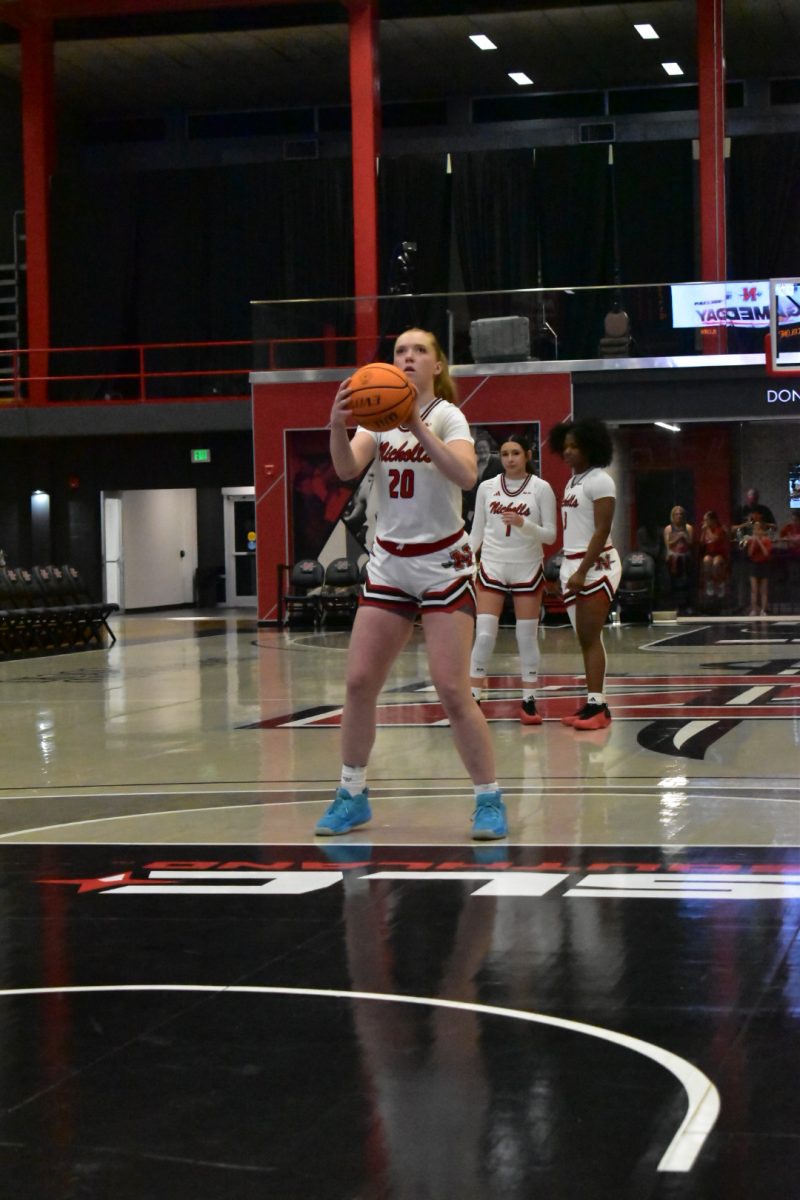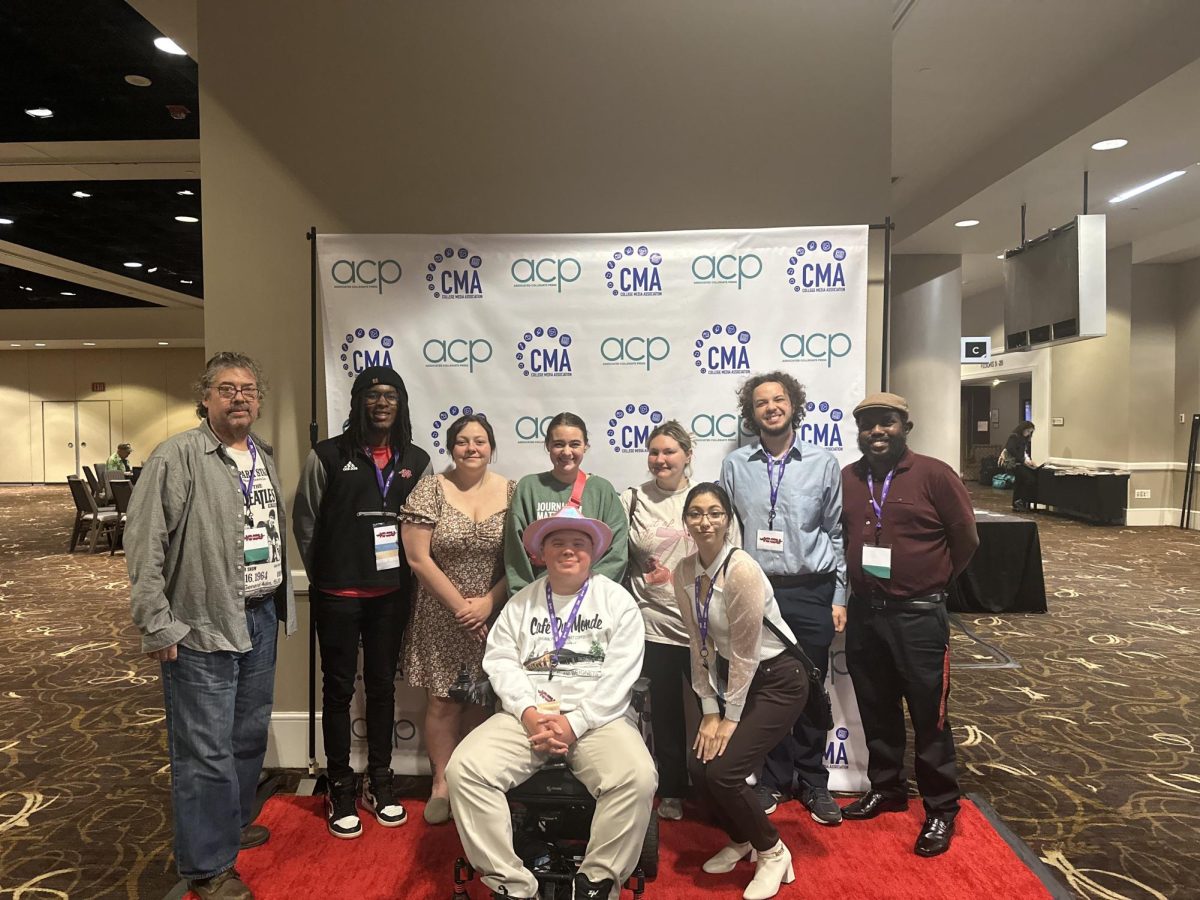Let your children stare at him. He does not mind. Let them ask him questions. He will be happy to explain. He will even answer your questions. Marty Dufrene will tell you about his years playing LSU football or about his amazing wife Lynne. They have been married for almost 24 years. He will definitely mention his 18-year-old daughter Amy, now a freshman at his alma mater. He will tell you about his horses – Tori-Anne, Alex and Zane – who run freely on his 32-acre estate. You will hear about the book he has just finished. He is hoping it will be published soon.
Most of all, he will want to know about you. He will ask about your family, your hobbies, your career. He will be one of the most interesting people you have ever met.
By the way, don’t worry. At some point in the conversation with him, his wheelchair will disappear.
A Larose resident, Dufrene still clearly remembers what put him in that chair. It was shortly after midnight on June 6, 1986. As student body president of a chiropractic college in Irving, Texas, Dufrene was cleaning the premises of the welcome party he hosted for incoming freshmen.
Dufrene noticed a cup in the pool. Instead of going into the pool, he waited for the wind to deliver it to his feet. When the seven-ounce plastic cup arrived at the edge of the pool, he bent down to pick it up. And Dufrene’s life changed forever.
Suddenly, a classmate, attempting to be funny, put Dufrene in a headlock. At the same time, another classmate came from behind and pushed Dufrene into the shallow pool.
With his 150-pound classmate still clinging to his neck, Dufrene fell into less than three feet of water.
Dufrene remembers the journey to the surface feeling like a typical dive into a pool. The landing was no less than a belly bust. At that point, most people would get up with a stinging sensation to their stomach and a slight blow to their pride and exit the pool.
Not Dufrene. He floated face down like a dead man. “I could see my arms in my peripheral vision, but I couldn’t turn my head. I could see my feet, my toes touching the bottom, but again, I couldn’t turn my head,” Dufrene recalls, reliving the moment. “I couldn’t turn my head to get any air. I couldn’t swish my arms to stand up. It was an instantaneous feeling of panic, and at the same time, it became calm because I thought I was dead.”
Instead, Dufrene was paralyzed from his shoulders down.
Rather than being carried over the threshold, his new bride would have to transfer him from his wheelchair to their bed every night. In the place of piggyback rides, Dufrene’s 14-month-old daughter would receive rides on the lap of her daddy in his electric wheelchair. But even to do that much, Dufrene had to learn.
After his accident, Dufrene spent two months in the hospital and four months in physical and occupational therapy where he regained some use of his biceps and deltoids. His hands remain clenched like a club on a stick. The medical bills quickly accumulated, and Dufrene’s first opportunity to make a difference was presented.
Spearheaded by his family, the Marty Dufrene Foundation, Inc. was established. Although the Foundation was initially created to help Dufrene pay his expenses, he became the president and continued the outreach efforts for others even after he stopped receiving donations. In its 15 years of existence, the Foundation has provided information, medical equipment and money for nearly 100 families dealing with traumatic injuries or diseases.
Even with the support of the Foundation, Dufrene’s financial obligations forced him to apply for Social Security Disability. He terminated the government funding as soon as he was able to support himself again.
“That was not my thing to sit in the corner and get a check every month while watching the grass grow,” Dufrene says. “Everybody has a talent. Everybody has an ability. It’s a matter of finding it.”
Dufrene found his. A year and two months after the accident, he enrolled in Nicholls State University to pursue a bachelor’s degree in education. He graduated two and a half years later in the spring of 1990 with honors and was immediately hired at an alternative school in Lafourche Parish where he taught for one and a half years.
He was proud of his ability to handle the students. “I never sent one to the office. Never,” Dufrene recalls. “One boy walked out of my class one day, and the next day, he came back and was apologizing.” Dufrene stressed respect in his classroom, a value he truly believes in.
In 1992, Lafourche Parish Sheriff Craig Webre offered Dufrene a job. He accepted. In eight years, Dufrene was promoted from office manager to personnel director to personnel captain to major, a position that is third in line from, the sheriff. At an annual award’s banquet for the department, Webre presented Dufrene with his most prestigious honor, The Sheriff’s Star.
“I never thought I would present this award to a guy that sits around all day,” Webre said jokingly at the banquet. “But even from a sitting position, this individual stands tall.”
Dufrene stands tall in his home also. Although his wife has assumed new responsibilities such as cutting the grass, doing carpentry and electrical work, Dufrene says they work as a team. He explains to Lynne how to perform the specific task, and she does it. Their team is built on unconditional love. “I think that’s what we have because no matter what happens we go forth together,” Dufrene says. Lynne agrees.
That doesn’t mean everything about his family life has been easy.
“When somebody else has to teach your little baby how to ride a bicycle, that hurts,” Dufrene remembers. “At the dances she [Amy] always wanted to dance, but my daddy or somebody else had to dance with her. The biggest challenge is trying to just swallow your emotions.” It must have worked since Amy says her dad is “the best dad ever to live…an inspiration.”
Dufrene believes the only limitation a person has is between that person’s ears. He approaches each day as an athlete approaches a game. “You develop a game plan, but when you get out there, it doesn’t always happen like you planned,” he says. “So, you adjust. And that’s all it is.”
It is that simple for Dufrene.
So, let your children ask him questions. They may learn something. You may learn something. And, again, do not worry. The wheelchair will disappear. It will happen about the same time you realize that for him, it was never there.







